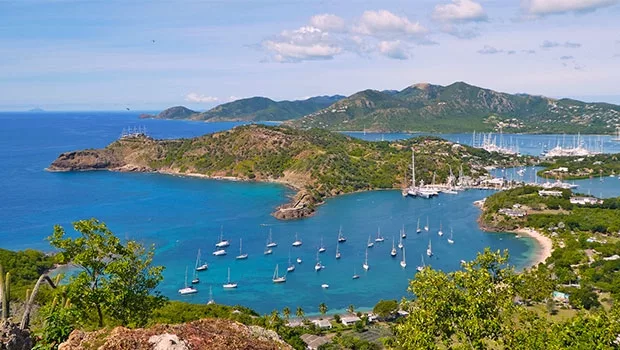By Robert A. Emmanuel
“Shared understanding is needed among all stakeholders of what a sustainable blue economy means in order to support collaborative approaches.”
That was one of the findings from a recently published 54-page Commonwealth report which looked at the opportunities for Caribbean blue economies.
As part of a Rapid Readiness Assessment (RRA) employed by the researchers, both Trinidad and Tobago and Antigua and Barbuda were assessed based on desk-based analysis, stakeholder workshops and interviews, giving each country a view on the next steps.
In a Commonwealth press release, Ann-Louise Hill from the Department of the Blue Economy was quoted saying, “Fully transitioning to a sustainable blue economy is not straightforward, but as the Rapid Readiness Assessment demonstrates, it is worth the effort.
“Antigua and Barbuda must forge its own path, informed by the most effective practices and best available knowledge, while also accounting for the country’s unique history, culture and circumstances.”
According to the report for Antigua and Barbuda, some of the challenges include a “lack of clear, formal mandate for the [Department of the Blue Economy], or allocation of resources to act as leading convenor in the transition to a sustainable blue economy”.
The report further stated that little understanding into the definition of a sustainable blue economy, or the lack of awareness of other governmental departments in their integral role in the transition, underlies many of the issues found by researchers and limits the effectiveness of the Department of the Blue Economy.
“Ensuring that leadership is representative of both Antigua and Barbuda is challenging but essential to develop the SBE [sustainable blue economy] for the nation in a co-ordinated and collaborative way,” the report finds.
While the researchers acknowledged that Antigua and Barbuda is a single island state, it claimed that ultimately “the characteristics, resources and needs of both [islands] are different in several ways”.
They named the Ministry of Education, Finance and Corporate Governance, Agriculture and Fisheries and further representation from Barbuda—to ensure effective decision-making—as the actors for improved collaboration.
One of the highlighted differences between the two islands was the continual fight over land ownership laws. The report noted that changes to the Barbuda Land Act had “significantly changed the potential of Barbuda and opens it up to larger-scale developments which were not previously a priority”.
Another highlight of the report was the reliance on the tourism sector, where they argued that “given the degradation or removal of coastal ecosystems for development, plastic waste, and insufficient waste management infrastructure to cope with national solid waste, expansion in this sector will require major efforts to ensure ‘greening’ through long-term sustainability and changing existing practices to ensure the islands can cope”.
They also noted that economic reliance on the industry was a barrier to the transition to a more sustainable marine sector as “environmental sustainability of this sector has been relatively poor to date”.
Going further into the report, the researchers noted the increased development of the yachting industry over the last decade, however they highlighted that serious work needed to be done to improve the sector.
Last year, government officials and yachting enthusiasts opened a new yachting berth in the English Harbour area.
In summary, the report argued for the need for sustainable economic diversification, strengthening of waste management infrastructure and addressing socio-cultural reasons for unsustainable behaviour “in order to deliver advocacy, awareness and understanding of the sustainable blue economy”.
According to the Commonwealth, the sustainable blue economy encourages sustainable exploitation, innovation and stewardship of our ocean and its life-giving ‘blue’ resources with Antigua and Barbuda and Kenya as champions in developing an integrated approach to the blue economy.
The Department of the Blue Economy, once headed by former minister Dean Jonas, is currently under the portfolio of the Minister for Foreign Affairs, Trade, Agriculture, and Barbuda Affairs, EP Chet Greene.

